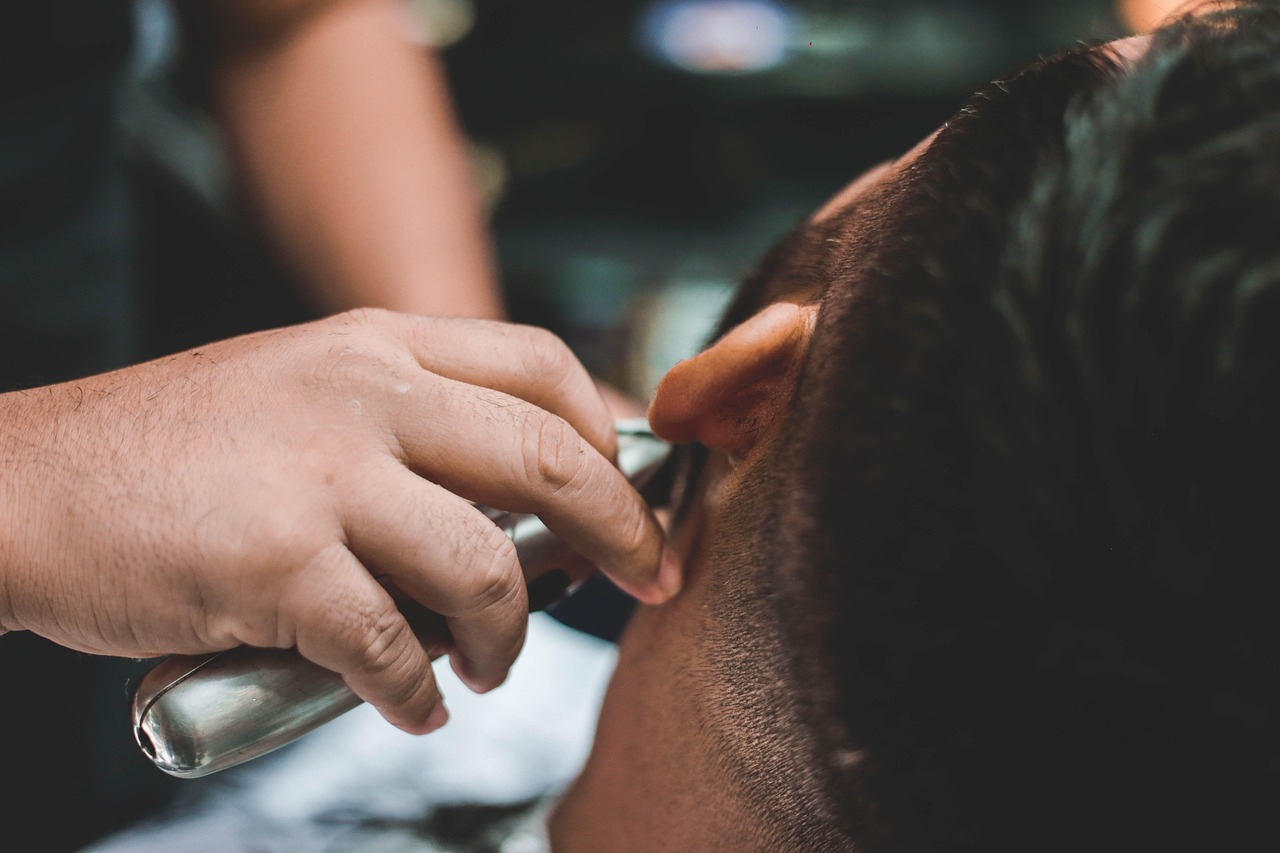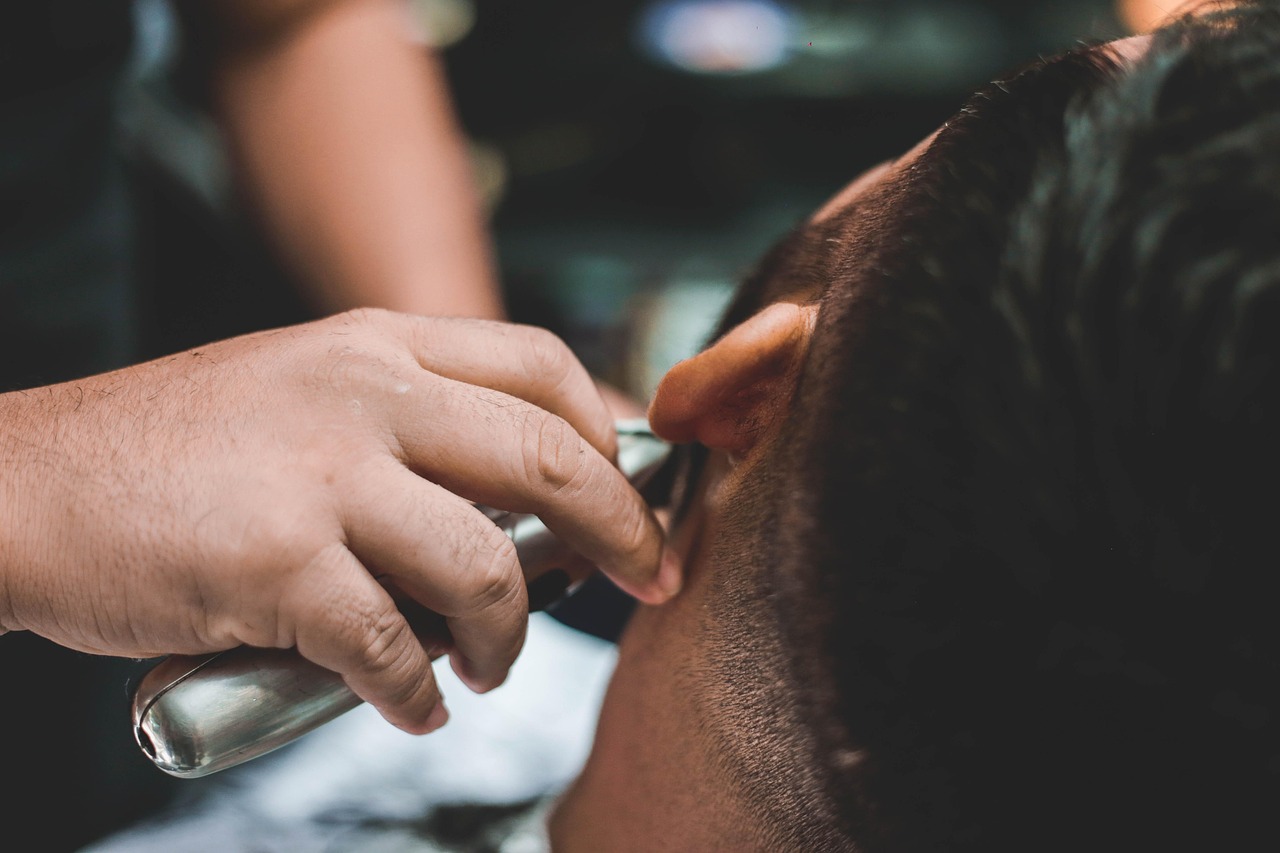This article provides a comprehensive overview of hair transplant options in Turkey, focusing on top clinics, pricing, and what patients can expect during the procedure and recovery.
Why Choose Turkey for Hair Transplants?
Turkey has emerged as a leading destination for hair transplants, attracting thousands of international patients each year. The reasons for this popularity include:
- Affordable Prices: Compared to many Western countries, Turkey offers significantly lower prices without compromising on quality.
- Advanced Medical Technology: Clinics in Turkey use state-of-the-art equipment and techniques, ensuring high success rates.
- Skilled Professionals: Many surgeons in Turkey have international certifications and extensive experience in hair restoration.
Top Hair Transplant Clinics in Turkey
Several clinics in Turkey are renowned for their exceptional services. Here are some of the best:
- Clinic A: Known for its personalized care and a wide range of hair transplant techniques.
- Clinic B: Famous for its high patient satisfaction rates and successful outcomes.
- Clinic C: Offers competitive pricing and a beautiful setting in Antalya.
Understanding Hair Transplant Techniques
There are various hair transplant techniques available, each with its own benefits:
- FUE (Follicular Unit Extraction): A minimally invasive technique that extracts individual hair follicles.
- FUT (Follicular Unit Transplantation): Involves removing a strip of scalp tissue to harvest hair follicles.
Cost of Hair Transplants in Turkey
The cost of hair transplants in Turkey can vary significantly based on several factors:
- Average Costs: Patients can expect to pay anywhere from $1,500 to $4,000, depending on the clinic and technique.
- What Affects the Price? Factors include the surgeon’s experience, clinic location, and the complexity of the procedure.
What to Expect During the Procedure
Understanding the process can help alleviate anxiety. Here’s what to expect:
- Pre-Procedure Consultation: A thorough consultation is crucial for personalized treatment.
- The Procedure Day: Patients will undergo several steps, including anesthesia and the actual hair transplant.
Post-Procedure Care and Recovery
Proper aftercare is essential for successful results. Key points include:
- Immediate Aftercare Instructions: Following the procedure, adhere to specific aftercare instructions for optimal healing.
- Long-Term Care Tips: Maintain your hair health with practical long-term care strategies.
Final Thoughts on Hair Transplants in Turkey
In conclusion, Turkey offers a blend of quality, affordability, and expertise in hair transplants. Potential patients should carefully consider their options and consult with professionals to achieve the best results.

Why Choose Turkey for Hair Transplants?
Turkey has emerged as a premier destination for individuals seeking hair transplant procedures, and there are several compelling reasons why it stands out in this field. With its affordable pricing, cutting-edge medical technology, and a pool of highly skilled professionals, Turkey attracts thousands of patients from around the globe every year.
One of the most significant advantages of choosing Turkey for hair transplants is the cost-effectiveness. Compared to many Western countries, the prices for hair transplant surgeries in Turkey can be significantly lower, often ranging from $1,500 to $3,000, depending on the clinic and the specific procedure. This affordability does not compromise the quality of care, as many clinics maintain high standards and are accredited by international health organizations.
In addition to cost, Turkey boasts some of the most advanced medical technologies in the field of hair restoration. Many clinics utilize state-of-the-art equipment and techniques, such as Follicular Unit Extraction (FUE) and Direct Hair Implantation (DHI), which are minimally invasive and yield natural-looking results. These methods ensure a quicker recovery time, allowing patients to return to their daily lives sooner.
Moreover, the expertise of Turkish surgeons plays a crucial role in the country’s reputation as a hair transplant hub. Many professionals have extensive training and experience, often performing hundreds of procedures annually. Their commitment to continuous education and staying updated with the latest advancements in hair restoration techniques further enhances the quality of care provided.
Finally, the experience of traveling to Turkey adds an extra layer of appeal. Patients can enjoy a unique blend of medical tourism and cultural exploration, making their hair transplant journey not just a medical procedure but also an enriching experience. From stunning landscapes to rich history, Turkey offers a perfect backdrop for recovery.
In summary, Turkey’s combination of affordability, advanced technology, skilled professionals, and cultural richness makes it an ideal choice for those considering hair transplants. With thousands of satisfied patients, it’s clear why Turkey continues to be a leading destination for hair restoration.

Top Hair Transplant Clinics in Turkey
Turkey has emerged as a premier destination for hair transplant procedures, attracting numerous patients from around the globe. This section provides an in-depth look at some of the best clinics available, emphasizing their credentials, patient reviews, and success rates.
- Clinic A
- Credentials: Accredited by international medical organizations, ensuring high standards of care.
- Patient Reviews: Over 95% of patients report satisfaction with their results.
- Success Rates: Achieves a success rate of approximately 90% in hair growth post-procedure.
- Clinic B
- Credentials: Renowned for its advanced techniques and experienced surgeons.
- Patient Reviews: Positive testimonials highlight the clinic’s personalized care and attention to detail.
- Success Rates: Notable for a high retention rate of transplanted hair follicles.
- Clinic C
- Credentials: Offers cutting-edge technology and is led by board-certified professionals.
- Patient Reviews: Many patients commend the clinic for its comprehensive aftercare services.
- Success Rates: Reported success rate of 85% or higher for long-term hair growth.
These clinics not only provide exceptional medical services but also prioritize patient comfort and satisfaction. With a combination of skilled professionals and state-of-the-art facilities, they stand out in the competitive landscape of hair restoration.
Choosing the right clinic is crucial for achieving desired results. Prospective patients are encouraged to conduct thorough research and consider factors such as surgeon experience, clinic reputation, and patient testimonials before making a decision.
Clinics in Istanbul
Istanbul stands out as a premier destination for individuals seeking hair transplant solutions. With a multitude of clinics offering state-of-the-art procedures, the city is renowned for its high standards in medical care and patient satisfaction. This section delves into the top-rated hair transplant clinics in Istanbul and highlights what distinguishes them from others.
This vibrant city is not only rich in history but also in medical expertise, particularly in hair restoration. The clinics here are equipped with advanced technology and staffed by highly trained professionals, ensuring that patients receive the best possible care.
- Clinic A: Known for its personalized treatment plans, Clinic A offers a variety of hair transplant techniques, including FUE and FUT. Their team of experienced surgeons is dedicated to achieving natural-looking results, which has garnered them numerous positive reviews from satisfied patients.
- Clinic B: This clinic prides itself on its exceptional patient care. With a focus on comfort and transparency, Clinic B provides detailed consultations to ensure patients are well-informed about their options. Testimonials frequently highlight the supportive staff and successful outcomes.
- Clinic C: Utilizing the latest technology, Clinic C is noted for its innovative approaches to hair restoration. They offer comprehensive packages that include pre-operative assessments and post-operative follow-ups, ensuring a seamless experience for their patients.
What sets these clinics apart is not just their medical expertise but also their commitment to patient education and care. From the initial consultation to the final follow-up, clinics in Istanbul prioritize the needs and concerns of their patients, fostering a supportive environment that encourages questions and open communication.
In conclusion, the hair transplant clinics in Istanbul are distinguished by their advanced techniques, experienced professionals, and exceptional patient care. Choosing a clinic in this city means opting for quality, safety, and a high likelihood of achieving desired results.
Clinic A: Overview and Services
Located in the heart of Istanbul, Clinic A is a premier destination for individuals seeking hair transplant solutions. Renowned for its state-of-the-art facilities and a team of highly skilled professionals, Clinic A has become a trusted choice for international patients. The clinic offers a variety of hair transplant techniques, ensuring that each patient receives a personalized treatment plan tailored to their specific needs.
One of the standout features of Clinic A is its commitment to patient care. From the moment a patient steps through the doors, they are greeted by a friendly staff dedicated to making their experience as comfortable as possible. The clinic provides comprehensive consultations where patients can discuss their concerns, expectations, and desired outcomes with experienced surgeons.
- Techniques Offered:
- Follicular Unit Extraction (FUE)
- Follicular Unit Transplantation (FUT)
- Direct Hair Implantation (DHI)
- Advanced Technology: Clinic A utilizes the latest advancements in hair restoration technology, ensuring optimal results.
- Post-Procedure Support: Patients receive detailed aftercare instructions and ongoing support to ensure a smooth recovery process.
In addition to its technical expertise, Clinic A is praised for its affordable pricing without compromising on quality. Many international patients find that they can achieve their desired results at a fraction of the cost compared to clinics in their home countries.
Overall, Clinic A stands out not only for its innovative approaches to hair restoration but also for its dedication to patient satisfaction. As a popular choice among those seeking quality results, it continues to attract individuals from around the globe looking to regain their confidence through effective hair transplant solutions.
Clinic B: Patient Experience
At Clinic B, the focus on patient care is unparalleled, making it a top choice for individuals seeking hair transplant services. The clinic prides itself on not only its advanced techniques but also its commitment to ensuring that every patient feels comfortable and valued throughout their journey. This section explores the experiences of patients who have undergone procedures at Clinic B, highlighting their testimonials and the overall atmosphere of care.
One of the most significant aspects of Clinic B is the extensive pre-procedure consultation. Patients often mention how the medical team takes the time to explain the hair transplant process in detail, addressing any concerns and customizing the treatment plan to meet individual needs. This personalized approach helps in building trust and alleviating anxiety, which is crucial for anyone considering a hair transplant.
Many patients have shared their positive experiences regarding the professionalism and expertise of the staff. From the initial consultation to post-operative care, the team at Clinic B is described as attentive and knowledgeable. Patients frequently highlight how the surgeons are not only skilled but also genuinely care about achieving the best possible results for their clients.
In terms of outcomes, numerous testimonials reflect successful results, with patients expressing satisfaction with their new hairlines and improved self-esteem. The clinic’s commitment to using advanced techniques, such as FUE (Follicular Unit Extraction), has contributed to high success rates, further solidifying its reputation in the industry.
Moreover, the post-operative care provided by Clinic B is commendable. Patients appreciate the detailed aftercare instructions and follow-up appointments, which ensure that they are on the right track for recovery. This level of support is a significant factor in the overall positive experience reported by patients.
In conclusion, Clinic B stands out not only for its successful hair transplant outcomes but also for its exceptional patient care. The testimonials from satisfied patients underscore the clinic’s dedication to providing a supportive and professional environment, making it a leading choice for those considering hair restoration procedures.
Clinics in Antalya
Antalya, a stunning coastal city in Turkey, is rapidly gaining recognition as a premier destination for hair transplants. With its breathtaking scenery and a variety of high-quality clinics, patients are increasingly choosing Antalya for their hair restoration needs. In this section, we will explore some of the best clinics in Antalya, focusing on their services, patient experiences, and what makes them stand out in the competitive market.
- Clinic A: Antalya Hair Center
Antalya Hair Center is renowned for its state-of-the-art facilities and experienced medical staff. The clinic specializes in both FUE and FUT techniques, ensuring that each patient receives a tailored approach to their hair restoration. Patients have praised the clinic for its exceptional customer service and successful outcomes.
- Clinic B: Turkeyana Clinic
Turkeyana Clinic is another top choice for hair transplants in Antalya. With a focus on advanced technology and innovative techniques, the clinic has a high success rate and numerous positive reviews. Patients appreciate the comprehensive pre-operative consultations and the detailed aftercare provided, which contribute to a smooth recovery process.
- Clinic C: Memorial Antalya
Part of the prestigious Memorial Health Group, Memorial Antalya offers a wide range of hair transplant services. The clinic is staffed by highly qualified surgeons and is known for its commitment to patient safety and satisfaction. Many patients report excellent results and commend the clinic for its professional atmosphere.
In conclusion, Antalya boasts several world-class clinics that cater to the diverse needs of patients seeking hair transplants. Each clinic offers unique advantages, whether it be cutting-edge technology, experienced staff, or exceptional patient care. By carefully researching and selecting the right clinic, patients can achieve their desired hair restoration outcomes while enjoying the beautiful surroundings of Antalya.

Understanding Hair Transplant Techniques
is crucial for anyone considering a hair restoration procedure. With the rise of hair transplants in Turkey, it is essential to understand the various methods available, each offering unique benefits and potential drawbacks. This section delves into the most common techniques used in Turkey, providing a comprehensive overview to help patients make informed decisions.
In Turkey, two of the most popular hair transplant methods are Follicular Unit Extraction (FUE) and Follicular Unit Transplantation (FUT). Each technique has its own set of characteristics that cater to different patient needs.
| Technique | Overview | Advantages | Disadvantages |
|---|---|---|---|
| FUE | Involves extracting individual hair follicles from the donor area. |
|
|
| FUT | Involves removing a strip of scalp tissue to harvest hair follicles. |
|
|
Choosing the right technique depends on various factors, including the extent of hair loss, the desired outcome, and personal preferences. Patients are encouraged to consult with experienced professionals who can provide tailored advice based on individual circumstances.
Ultimately, understanding these techniques is the first step towards achieving satisfactory results in hair restoration. With the right knowledge and guidance, patients can confidently embark on their journey to regain their hair and self-esteem.
FUE (Follicular Unit Extraction)
is a cutting-edge, minimally invasive hair restoration technique that has gained immense popularity in recent years. This method is designed to extract individual hair follicles directly from the scalp, which allows for a more natural-looking result compared to traditional methods. In this section, we will delve into the procedure, recovery time, and the expected results of FUE.
The FUE procedure begins with a thorough consultation where the surgeon assesses the patient’s hair loss pattern and discusses the desired outcomes. On the day of the procedure, local anesthesia is administered to ensure the patient is comfortable throughout the process. Using a specialized tool, the surgeon carefully extracts individual hair follicles from the donor area, typically located at the back of the head. This meticulous approach minimizes scarring and allows for a quicker recovery.
After the follicles are harvested, they are prepared for transplantation. The surgeon creates tiny incisions in the recipient area and implants the follicles with precision, following the natural hair growth pattern. This step is crucial for achieving a seamless and natural appearance.
Regarding recovery time, most patients can expect to return to their normal activities within a few days. However, it is advised to avoid strenuous activities for at least a week to ensure proper healing. Initial hair growth may be noticeable within a few months, but full results typically become visible around 6 to 12 months post-procedure.
Patients can anticipate a significant improvement in hair density and overall appearance after undergoing FUE. The results are not only aesthetically pleasing but also long-lasting, making it an attractive option for those experiencing hair loss.
In summary, FUE is a highly effective hair restoration technique that provides natural-looking results with minimal downtime. Its popularity continues to rise as more individuals seek solutions for hair loss.
FUT (Follicular Unit Transplantation)
Follicular Unit Transplantation (FUT) is a well-established method used in hair restoration. This technique involves the surgical removal of a strip of scalp tissue from the donor area, typically at the back of the head, to harvest hair follicles. While FUT has been a traditional choice for many years, it comes with its own set of advantages and disadvantages that potential patients should consider.
Advantages of FUT
- Higher Yield: FUT often allows for the harvesting of a greater number of hair follicles in a single session, making it suitable for patients with significant hair loss.
- Cost-Effective: Generally, the cost per graft can be lower with FUT compared to other techniques, such as FUE (Follicular Unit Extraction).
- Less Time in Surgery: The procedure can be quicker since multiple grafts can be harvested simultaneously.
Disadvantages of FUT
- Surgical Scarring: One of the main drawbacks is the linear scar left at the donor site, which may be visible if the hair is cut short.
- Longer Recovery Time: Patients may experience more discomfort and require a longer recovery period compared to FUE.
- Limited Donor Area: Once a strip is removed, the donor area is limited for future procedures, should they be necessary.
In conclusion, while FUT offers several benefits, including the ability to harvest a large number of follicles efficiently, it is essential for patients to weigh these against the potential drawbacks, such as scarring and recovery time. Consulting with a qualified hair restoration specialist can help individuals make an informed decision based on their unique needs and hair loss situation.

Cost of Hair Transplants in Turkey
One of the primary reasons why Turkey has become a popular destination for hair transplants is the affordability of the procedures. This section provides a detailed analysis of the pricing structure, including various factors that influence the overall cost.
| Procedure Type | Average Cost (USD) | Included Services |
|---|---|---|
| FUE (Follicular Unit Extraction) | $1,500 – $3,000 | Consultation, Procedure, Aftercare |
| FUT (Follicular Unit Transplantation) | $1,200 – $2,500 | Consultation, Procedure, Aftercare |
The average cost of hair transplants in Turkey can vary significantly based on several factors:
- Clinic Reputation: Well-established clinics with high success rates often charge more.
- Surgeon’s Experience: Highly skilled surgeons may have higher fees due to their expertise.
- Location: Clinics in major cities like Istanbul may have different pricing compared to those in smaller towns.
- Complexity of the Procedure: More complex cases may require additional resources, increasing costs.
Patients should also consider the packages offered by clinics, which may include additional services such as accommodation, transportation, and follow-up consultations. Understanding these elements can help patients make informed decisions.
In summary, the cost of hair transplants in Turkey is generally lower than in many Western countries, making it an attractive option for those seeking quality treatment at a reasonable price. By thoroughly researching and comparing clinics, patients can find the best value for their needs.
Average Costs and Packages
When considering a hair transplant in Turkey, patients should be aware that costs can vary significantly based on several factors, including the clinic’s reputation, the chosen technique, and the specific package offered. This section provides a comprehensive overview of average costs and what patients can typically expect in their treatment packages.
On average, the cost of hair transplants in Turkey can range from $1,500 to $3,500. This price range is generally more affordable compared to many Western countries, making Turkey a popular destination for international patients seeking quality hair restoration.
| Package Type | Average Cost | Inclusions |
|---|---|---|
| Basic Package | $1,500 | Consultation, FUE or FUT procedure, basic aftercare |
| Standard Package | $2,500 | Consultation, FUE or FUT procedure, aftercare products, 1 night hotel stay |
| Premium Package | $3,500 | Consultation, FUE procedure, personalized aftercare, 3 nights hotel stay, airport transfer |
Typically, these packages include essential services such as a thorough initial consultation, the chosen hair transplant technique, and comprehensive aftercare instructions. Some clinics may also offer additional amenities such as transportation to and from the airport and accommodation during the stay.
It’s important for patients to review what each package entails, as some may include advanced features like personalized follow-up care or additional treatments to enhance results. Always consult with the clinic to ensure you understand the full scope of services provided in your chosen package.
In conclusion, while the initial cost of a hair transplant in Turkey is generally lower than in many other countries, the value comes from the comprehensive services included in the packages. Patients should consider their needs and preferences when selecting a clinic and package to ensure they receive the best possible care and results.
What Affects the Price?
The cost of hair transplants can vary significantly based on several key factors. Understanding these elements can help potential patients make informed decisions when considering a hair restoration procedure in Turkey.
- Location of the Clinic: The geographical location of the clinic plays a crucial role in determining the price. Clinics situated in major cities like Istanbul may charge more due to higher operational costs compared to those in smaller towns. However, the concentration of skilled professionals in urban areas can often justify the higher price.
- Surgeon’s Experience: The expertise and reputation of the surgeon can greatly influence the cost. Highly experienced surgeons who have a track record of successful procedures may charge a premium for their services. Patients are often willing to invest more for the assurance of quality and safety.
- Complexity of the Procedure: The specific technique chosen for the hair transplant, such as FUE or FUT, can impact costs. More intricate procedures that require additional time, skill, or advanced technology typically come with higher price tags. It’s essential for patients to understand the differences and select the method that best suits their needs.
- Number of Grafts Required: The total number of hair follicles (grafts) needed for the transplant will also affect the overall cost. Patients with more significant hair loss may require more grafts, leading to higher expenses. Clinics often provide packages that include a specific number of grafts, which can help in budgeting.
- Additional Services: Many clinics offer comprehensive packages that may include pre-operative consultations, post-operative care, and even accommodation. These added services can contribute to the overall price but often enhance the patient’s experience and outcomes.
In summary, when evaluating the cost of hair transplants, it is essential to consider these factors carefully. Doing thorough research and consulting with multiple clinics can help patients find the best options that fit their budget while ensuring quality care.

What to Expect During the Procedure
Understanding the process of a hair transplant can significantly help in alleviating any anxiety you may have about the procedure. This section will guide you through what to expect on the day of your hair transplant, from your arrival at the clinic to the important post-procedure care you will need to follow.
Arrival at the Clinic
Upon your arrival, you will be greeted by the clinic staff who will assist you with the necessary paperwork. It is essential to arrive on time, as this will allow for a thorough pre-procedure consultation. During this consultation, the medical team will review your medical history, discuss your expectations, and outline the specifics of the procedure.
Preparation for the Procedure
- Consultation: The surgeon will explain the chosen technique for your hair transplant, whether it be FUE or FUT, and answer any questions you may have.
- Anesthesia: Before the procedure begins, local anesthesia will be administered to ensure your comfort throughout the process.
The Hair Transplant Procedure
Once you are comfortable and ready, the procedure will commence. The entire process can take anywhere from 4 to 8 hours, depending on the extent of the transplant. Here’s a brief overview of what happens:
- Harvesting Hair Follicles: For FUE, individual follicular units are extracted, while FUT involves removing a strip of scalp.
- Implantation: The harvested follicles are then meticulously implanted into the thinning or balding areas of your scalp.
Post-Procedure Care
After the procedure, you will receive detailed instructions on how to care for your newly transplanted hair. It is crucial to follow these guidelines to ensure optimal healing and successful results. Common post-procedure care tips include:
- Avoiding strenuous activities for a few days.
- Keeping the scalp clean and moisturized.
- Attending follow-up appointments for monitoring and care.
In conclusion, knowing what to expect during your hair transplant can greatly reduce anxiety and help you feel more prepared for the journey ahead. With the right clinic and care, you can look forward to achieving the hair restoration results you desire.
Pre-Procedure Consultation
When considering a hair transplant, the is an essential first step that sets the stage for a successful outcome. This initial meeting allows both the patient and the surgeon to establish a clear understanding of expectations, goals, and the specific needs of the individual.
During the consultation, the surgeon will conduct a thorough assessment of the patient’s hair loss pattern, scalp condition, and overall health. This evaluation is crucial because it helps determine the most suitable hair transplant technique for the patient, whether it be FUE (Follicular Unit Extraction) or FUT (Follicular Unit Transplantation).
- Medical History Review: The surgeon will ask about any existing medical conditions, medications, and previous surgeries that could impact the procedure.
- Hair Loss Analysis: A detailed examination of the hair loss area will help the surgeon understand the extent of hair thinning and the donor area’s viability.
- Personalized Treatment Plan: Based on the assessment, the surgeon will create a tailored plan that aligns with the patient’s desired outcomes.
- Discussion of Techniques: The surgeon will explain the available techniques, their pros and cons, and recommend the best option for the patient.
Moreover, this consultation serves as an opportunity for patients to ask questions and express any concerns they may have regarding the procedure. Addressing these concerns upfront can significantly reduce anxiety and help patients feel more comfortable with their decision.
In conclusion, the pre-procedure consultation is a vital component of the hair transplant journey. It not only lays the groundwork for a personalized treatment plan but also fosters a trusting relationship between the patient and the surgeon, ultimately contributing to a more satisfying and successful hair restoration experience.
The Procedure Day
On the day of the hair transplant procedure, patients will experience a series of carefully orchestrated steps designed to ensure comfort and efficiency. Understanding these steps can help alleviate any anxiety and prepare patients for what lies ahead.
- Arrival at the Clinic: Patients should arrive at the clinic on time, usually in the morning. Upon arrival, they will be greeted by the clinic staff who will guide them through the check-in process.
- Pre-Procedure Consultation: A brief consultation with the surgeon will take place to review the procedure and address any last-minute questions. This is also the time to discuss the expected results and finalize the treatment plan.
- Anesthesia Administration: To ensure a pain-free experience, local anesthesia will be administered to the scalp. This allows patients to remain awake and relaxed during the procedure.
- Hair Follicle Extraction: Depending on the chosen technique, either FUE or FUT will be performed. In FUE, individual hair follicles are extracted, while in FUT, a strip of scalp is removed. Each method has its own set of advantages.
- Implantation of Hair Follicles: After extraction, the harvested follicles are carefully implanted into the recipient areas of the scalp. The surgeon will create tiny incisions to ensure a natural-looking hairline.
- Post-Procedure Monitoring: Once the procedure is complete, patients will be monitored for a short period to ensure there are no immediate complications. This is a good time for patients to ask any final questions.
Recovery Time: After the procedure, patients can typically return home the same day. Initial recovery may involve some swelling and discomfort, but these symptoms usually subside within a few days. It’s essential to follow the clinic’s aftercare instructions to promote healing and optimal results.
By understanding these steps, patients can approach their hair transplant with confidence, knowing what to expect throughout the procedure day.

Post-Procedure Care and Recovery
is a critical phase following a hair transplant, as it significantly influences the overall success of the procedure. Proper aftercare ensures optimal healing and helps maintain the health of your newly transplanted hair. Below, we outline essential steps and tips for effective recovery and long-term hair maintenance.
- Follow Immediate Aftercare Instructions: After the procedure, your surgeon will provide specific guidelines. It’s crucial to adhere to these instructions to promote healing. Common recommendations include:
- Avoiding direct sunlight on the scalp for at least two weeks.
- Refraining from strenuous activities or heavy lifting for a few days.
- Using prescribed medications to minimize discomfort and prevent infection.
- Keep the Scalp Clean: Maintaining cleanliness is vital for recovery. Gently wash your scalp with a mild shampoo as recommended, usually starting a few days post-procedure. Avoid scrubbing the area to prevent dislodging grafts.
- Monitor for Unusual Symptoms: While some swelling and redness are normal, be vigilant for signs of complications, such as excessive bleeding or pus. If you notice these symptoms, contact your clinic immediately.
- Maintain a Healthy Diet: Consuming a balanced diet rich in vitamins and minerals can support hair growth. Foods high in protein, iron, and omega-3 fatty acids are particularly beneficial.
- Stay Hydrated: Drinking plenty of water aids in the healing process. Hydration is essential for overall health and can contribute to the vitality of your hair.
Long-Term Care Tips: Once the initial recovery phase is complete, maintaining the health of your transplanted hair is crucial. Here are some practical tips:
- Use Gentle Hair Products: Opt for sulfate-free shampoos and conditioners to avoid irritation. Look for products specifically designed for sensitive scalps.
- Avoid Heat Styling: Minimize the use of hair dryers, straighteners, and curling irons, as excessive heat can damage hair follicles.
- Regular Scalp Massages: Gentle massages can increase blood circulation to the scalp, promoting hair growth and health.
- Consider Supplements: Consult with your healthcare provider about taking supplements that support hair health, such as biotin or vitamin D.
In conclusion, proper aftercare following a hair transplant is vital for achieving desired results. By following immediate care instructions and implementing long-term maintenance strategies, you can ensure the longevity and health of your transplanted hair.
Immediate Aftercare Instructions
After undergoing a hair transplant, adhering to is crucial for ensuring optimal healing and achieving the best possible results. The following key points outline the essential steps you should follow:
- Keep the area clean: It is vital to keep the scalp clean to prevent infection. Gently wash your hair with a mild shampoo as recommended by your surgeon.
- Avoid direct sunlight: Protect your scalp from direct sunlight for at least two weeks post-surgery. Wearing a loose hat can provide shade and protection.
- Do not touch or scratch: Refrain from touching or scratching the transplanted area. This can disturb the healing process and affect the results.
- Follow medication guidelines: Take any prescribed medications as directed. This may include pain relievers and antibiotics to prevent infection.
- Stay hydrated: Drinking plenty of water helps in the healing process. Aim to stay well-hydrated throughout your recovery.
- Sleep position: Sleep with your head elevated for the first few nights to minimize swelling. This can be achieved with extra pillows.
- Limit physical activity: Avoid strenuous activities, heavy lifting, or vigorous exercise for at least a week to allow your scalp to heal properly.
- Follow follow-up appointments: Attend all scheduled follow-up appointments with your surgeon to monitor your recovery and address any concerns.
By following these , you can significantly enhance your recovery experience and ensure that your hair transplant yields the desired results. Remember, taking care of your scalp is just as important as the procedure itself.
Long-Term Care Tips
Long-term hair care is essential for ensuring the longevity and health of your transplanted hair. After undergoing a hair transplant, many patients focus on the immediate post-procedure care, but maintaining the results over time is equally important. Here are some practical tips to help you care for your transplanted hair and promote overall hair health.
- Regular Scalp Care: Keep your scalp clean and hydrated. Use a gentle shampoo that is free from sulfates and harsh chemicals to avoid irritation.
- Moisturize: Apply a suitable moisturizer or hair oil to nourish your scalp and hair follicles. Natural oils like coconut or argan oil can be beneficial.
- Avoid Heat Styling: Minimize the use of heat styling tools such as blow dryers, straighteners, and curling irons. Excessive heat can damage hair and hinder growth.
- Balanced Diet: Consume a nutritious diet rich in vitamins and minerals. Foods high in protein, omega-3 fatty acids, and vitamins A, C, and E can promote healthy hair growth.
- Stay Hydrated: Drink plenty of water to keep your body and scalp hydrated. Proper hydration supports overall hair health.
- Regular Trims: Schedule regular haircuts to remove split ends and maintain the shape of your hairstyle. This helps in keeping your hair looking fresh and healthy.
- Avoid Stress: High stress levels can lead to hair loss. Engage in relaxation techniques such as yoga, meditation, or regular exercise to manage stress effectively.
- Follow-Up Appointments: Attend regular follow-up appointments with your hair transplant specialist. They can provide personalized advice and monitor your hair’s progress.
By following these , you can significantly enhance the health and appearance of your transplanted hair. Remember that consistency is key, and making these practices a part of your daily routine will yield the best results over time.

Final Thoughts on Hair Transplants in Turkey
In summary, Turkey stands out as a premier destination for individuals seeking hair transplants. The unique combination of affordability, quality, and expertise makes it an attractive option for many international patients. Below, we will summarize the key points to consider when contemplating a hair transplant in Turkey.
- Quality of Care: Renowned clinics in Turkey employ advanced technologies and techniques, ensuring that patients receive top-notch care.
- Affordability: Compared to many Western countries, the cost of hair transplants in Turkey is significantly lower, making it accessible to a wider audience.
- Expertise: Many Turkish surgeons are highly qualified and have extensive experience in the field of hair restoration, often trained in Europe and the United States.
Potential patients should take the time to research and compare different clinics, as not all facilities offer the same level of service. Reading patient reviews and testimonials can provide valuable insights into the experiences of others. Additionally, prospective patients should consider scheduling a consultation to discuss their specific needs and expectations, ensuring that they are well-informed before making a decision.
Ultimately, while Turkey presents a wealth of options for hair transplants, it is essential for individuals to carefully weigh their choices. Taking the time to understand the process, costs, and aftercare can lead to a more satisfying outcome. As you embark on this journey towards restoring your hair, remember to prioritize your health and well-being above all.
In conclusion, Turkey’s hair transplant industry is characterized by a remarkable blend of affordable prices, high-quality care, and skilled professionals. By considering these factors and conducting thorough research, potential patients can make informed decisions that will lead to successful hair restoration.
Frequently Asked Questions
- What is the average cost of a hair transplant in Turkey?
The average cost of a hair transplant in Turkey can range from $1,500 to $3,000, depending on the clinic and the technique used. Many clinics offer packages that include accommodation and transportation, making it an attractive option for international patients.
- How long does the hair transplant procedure take?
The hair transplant procedure typically takes between 4 to 8 hours, depending on the number of grafts being transplanted. Patients can expect to spend a full day at the clinic for the procedure, including pre-operative consultations and post-operative care instructions.
- Is the hair transplant procedure painful?
Most patients report minimal discomfort during the hair transplant procedure, as local anesthesia is used to numb the scalp. Some may feel slight pressure or pulling, but overall, pain levels are generally low. After the procedure, mild pain relief medication can help manage any discomfort.
- How long does it take to see results after a hair transplant?
Results from a hair transplant can vary, but most patients start to see noticeable hair growth within 3 to 6 months. Full results typically develop within 12 to 18 months, as the transplanted hair continues to grow and mature.
- What should I do for aftercare following the procedure?
Aftercare is crucial for optimal results. Patients should follow the clinic’s specific aftercare instructions, which usually include avoiding strenuous activities, not touching or scratching the scalp, and using prescribed medications to promote healing.












